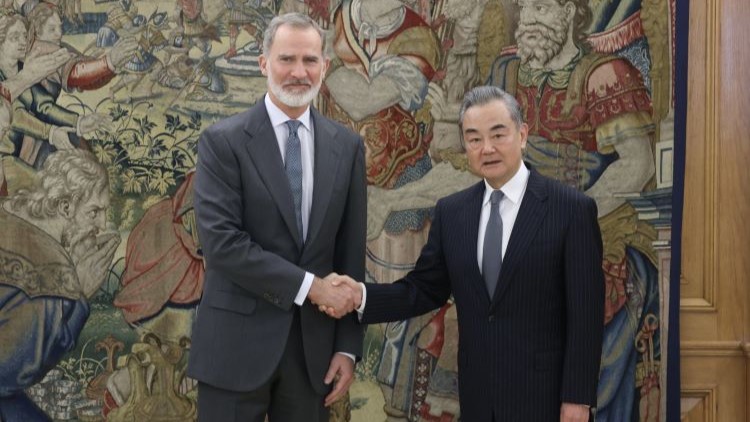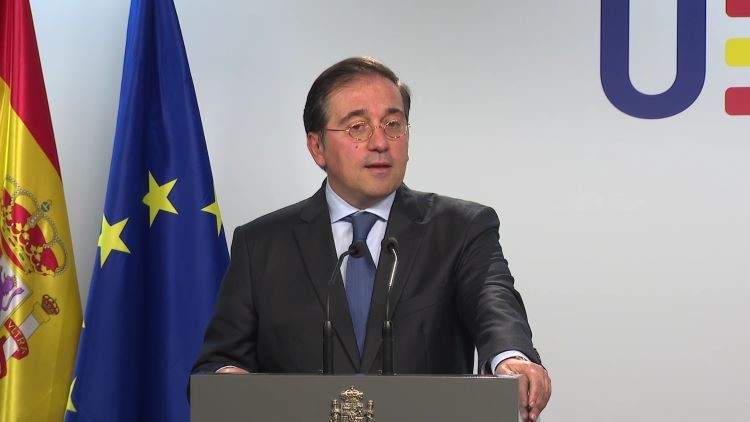Eduardo González
The President of the Government, Pedro Sánchez, received yesterday in La Moncloa the Minister of Foreign Affairs of the People’s Republic of China, Wang Yi, to whom he conveyed the important role that his country can play in contributing to peace and stability in conflicts in Ukraine and Gaza.
During the meeting, as reported by Moncloa, Pedro Sánchez highlighted the good moment that the relationship between both countries is going through, driven by the trip he himself made to China in March 2023, and talked about the opportunities for cooperation in the economic and cultural sphere. to deepen and give continuity to the relations between both countries, relations that, in his opinion, must be developed “in a framework of balance and reciprocity.”
Likewise, both addressed relations between the European Union and China and Sánchez conveyed to Wang the importance of China’s role in contributing to peace and stability in the conflicts in Ukraine and Gaza, as well as in the face of global challenges such as the climate emergency.
After his meeting with Pedro Sánchez, Wang Yi (member of the Political Bureau of the Central Committee of the Communist Party of China) was received in audience by King Felipe VI. Present at the meeting, which took place at the La Zarzuela Palace, were the Secretary of State for Foreign and Global Affairs, Diego Martínez Belío, and the Vice Minister of Foreign Affairs of the People’s Republic of China, Deng Li.
Wang’s working visit to Spain (as part of a tour of Europe) occurred almost a year after Sánchez’s trip to Beijing, in which he asked the president of the People’s Republic of China, Xi Jinping, to meet “in first hand” the peace plan of the president of Ukraine, Volodimir Zelensky. Pedro Sánchez was, at that time, the first Western leader to personally address with Xi the Chinese proposal to end the conflict in Ukraine, days after the Chinese leader’s trip to Moscow to meet with the Russian president, Vladimir Putin.
Precisely, on February 8, Xi held a new telephone conversation with Putin in which they addressed “hot international and regional issues” and the Chinese leader stressed that the two parties must work strategically to safeguard their “respective national interests of sovereignty, security and development and resolutely oppose interference in internal affairs by external forces.”
On that trip to Beijing, Pedro Sánchez and the Prime Minister, Li Qiang, adopted several agreements on cooperation in education, export of agricultural products and collaboration in sports and committed to resuming the High Level Dialogues established in 2018, to reinforce cooperation in economic and commercial matters and to resume the Joint Commission for Economic and Industrial Cooperation.
Last Thursday, the Chinese Ministry of Foreign Affairs declared that the objectives of Wang Yi’s visit to Spain are to “further implement the common agreements reached, preserve the friendly atmosphere of the 50th anniversary of diplomatic relations, consolidate mutual trust, improve friendship, promote cooperation and enrich the comprehensive strategic partnership between China and Spain.”
Wang Yi met this Sunday in Córdoba with his Spanish colleague, José Manuel Albares, to whom he thanked Spain for its support of “one China”, both with the PP and PSOE governments. Spain, like most countries, has not recognized Taiwan, a territory that maintains an Economic and Commercial Office in Madrid that acts as an “unofficial embassy.”
Before arriving in Spain, the Chinese minister participated in the Munich Security Conference, in which he warned that Taiwan independence is “incompatible” with peace and accused the pro-independence forces of “undermining peace and stability.” “To uphold the one-China principle, we must support the peaceful reunification of China,” declared Wang, calling China’s “aggressiveness in the South Sea” a “fallacy.”







